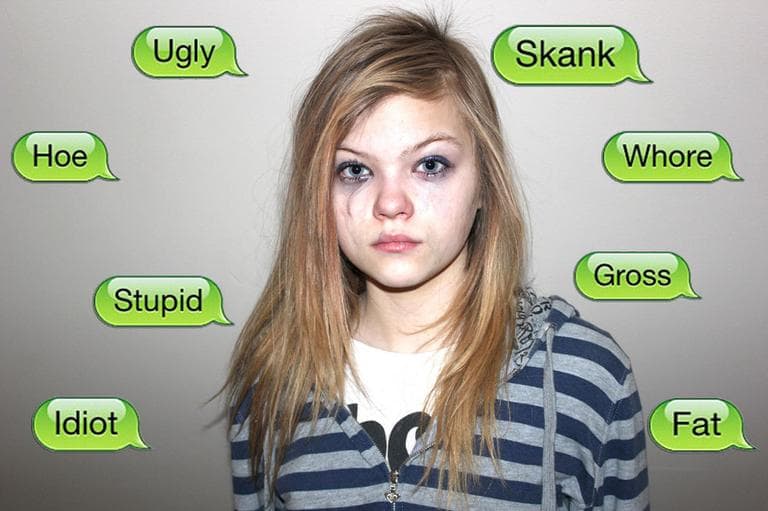Advertisement
Cyberbullying And Sexual Shaming
ResumeWhen cyberbullying turns into sexual shaming, with one teen who decided to tell her peers it’s got to stop.

In Nathaniel Hawthorne’s “The Scarlet Letter,” the sexually-shamed woman wore her shame with a capital A. But that three hundred and fifty years ago. The new scarlet letter is harder to shake.
Digital images, sexual images, taken surreptitiously or otherwise, and posted and shared online. It’s potent tool of teenage bullying, in particular. Digital, online, sexual shaming.
A teenage New York high school reporter has brought it vividly, disturbingly, to the public eye. She’s with us.
This hour, On Point: teenage cyberbullying and the new scarlet letter – sexual shaming online.
-Tom Ashbrook
Guests
Temitayo Fagbenle, member of Radio Rookies, a New York Public Radio initiative that helps teens produce radio stories. Her radio report, "Sexual Cyberbullying, The Modern Day Letter A" came out earlier this month.
Danielle Citron, professor of law at the University of Maryland focusing on information privacy and civil rights. Author of the upcoming book, "Hate 3.0: The Rise of Online Harassment and How to Stop It." (@daniellecitron)
From Tom's Reading List
NPR "In the Puritan times of the 17th century, shaming women as in Nathaniel Hawthorne's The Scarlet Letter for their wanton acts was a whole town effort. Today, this so-called slut shaming has a new tool. Instead of the town square, some people now turn to social media sites to share explicit photos and videos to shame these women and girls among their peers."
ABC News "In a recent online trend, teen girls have been posting silly photos of themselves that are then altered to include blunt advice to each other, about things like how to dress more appropriately. But some of the photos have then gone viral, and led to what some are calling a new form of teen shaming."
BuzzFeed "It seems there's just something very likable — in the internet sense, at least — about a girl using social media to attack other girls. It may well be easier to build a coalition against an 'enemy' who is different from you — as in the girls vs. boys nature of the responses to Boy In Outer Space — but it's another when the enemy IS you. 'You're not being a girl in the right way' is still a very popular argument to make. So, too, is 'I'm not like other girls.'"
This program aired on January 28, 2013.